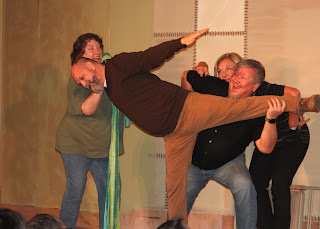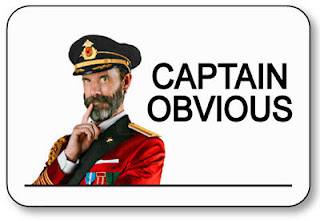Too busy not to have fun.

There is always so much to do! Even in retirement, I find my days go by so fast that I often don't get the things done that I want to. I may not go into the office daily, but I still preach most Sundays. It's amazing how people think that doesn't take time, after all I have thirty-six years of sermons piled up. And then there's my improv workshops, the Facebook improv page I have to keep current, and my blog. There are family obligations, a house to keep up, meals to shop for and prepare, you know, regular life. I've heard many retired people say they don't know how they ever found time to work! For those of you who are still gainfully employed, I know it can get even worse. The forty-hour work week seems to be a thing of the past. Most people I know are spending more and more time bring work from home, and if they happen to work from home, there are no such things as time clocks. As a parish priest, I lamented that church activities no longer drew the numbers










